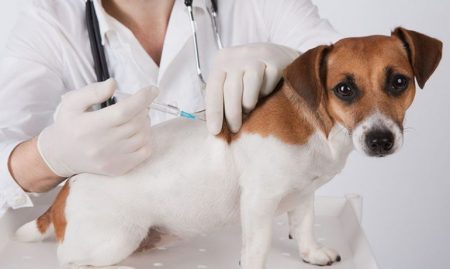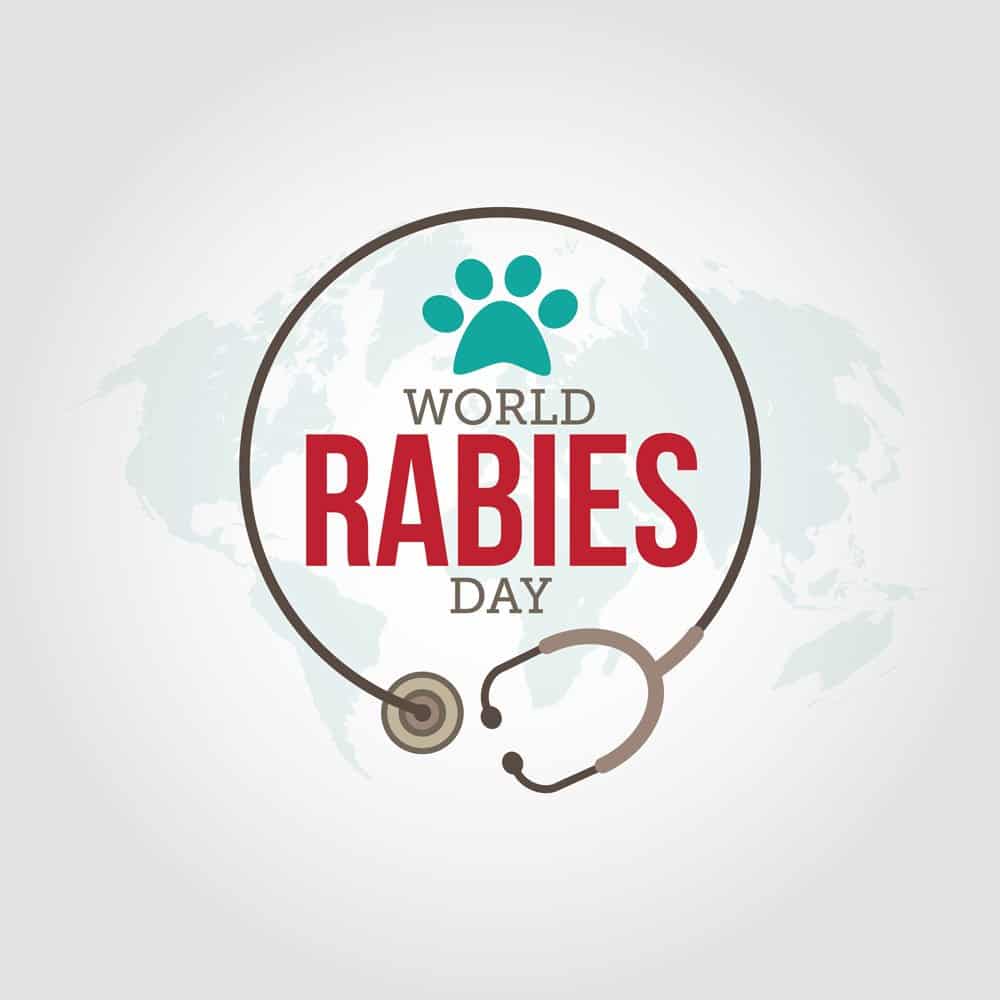September 28 is World Rabies Day, a global health observance started in 2007 to raise awareness about the burden of rabies and bring together partners to enhance prevention and control efforts worldwide. World Rabies Day is observed in many countries, including the United States.
What is rabies?
Rabies is a deadly disease caused by a virus that attacks the nervous system. The virus is secreted in saliva and is usually transmitted to people and animals by a bite from an infected animal. Less commonly, rabies can be transmitted when saliva from a rabid animal comes in contact with 
What animals can get rabies?
Only mammals can get rabies; birds, fish, reptiles and amphibians do not. In the United States, most cases of rabies occur in wild animals—mainly skunks, raccoons, bats, coyotes, and foxes. In recent years, cats have become the most common domestic animal infected with rabies. This is because many cat owners do not vaccinate their cats and cats can be exposed to rabid wildlife, either outdoors or when bats get into the house. Rabies also occurs in dogs and cattle in significant numbers and, while not as common, has been diagnosed in horses, goats, sheep, swine and ferrets.
What if my pet has bitten someone?
- Urge the victim to see a physician immediately and to follow the physician’s recommendations.
- Check with your veterinarian to determine if your pet’s vaccinations are up-to-date.
- Report the bite to the local health department and animal control authorities. Local regulations may require that your pet be confined and isolated for monitoring for signs of rabies.
- Immediately report any illness or unusual behavior by your pet to the local health department and to your veterinarian.
- Don’t let your pet stray and don’t give your pet away. The animal must be available for observation by public health authorities or a veterinarian.
- After the observation period, have your pet vaccinated for rabies if its vaccination is not current.
What if my pet has been bitten?
- Consult your veterinarian immediately.
- Even if your dog, cat or ferret has a current vaccination, he/she may need to be revaccinated immediately, kept under your control, and observed for a period as specified by state law or local ordinance. Animals with expired vaccinations will need to be evaluated on a case-by-case basis.
- Dogs, cats and ferrets that have never been vaccinated and are exposed to a rabid animal may need to be euthanatized in accordance with regulations or placed in strict isolation for six months.
- Animals other than dogs, cats, and ferrets that are bitten by a rabid or potentially rabid animal may need to be euthanatized immediately.
What if I am bitten?
- Don’t panic, but don’t ignore the bite. Wash the wound thoroughly and vigorously with soap and lots of water for 15 minutes.
- Call your physician immediately and explain how you were bitten. Follow the doctor’s advice. If necessary, your physician will give you the post exposure treatment recommended by the United States Public Health Service and may also treat you for other possible infections that could result from the bite.
- If possible, confine or capture the animal if it can be done safely. Once captured, don’t try to pick up the animal. Call the local animal control authorities to collect it. If the animal cannot be captured, try to memorize its appearance (size, color, etc.) and where it went after biting you.
- If it is a wild animal, only try to capture it if you can do so without getting bitten again. If the animal cannot be contained and must be killed to prevent its escape, do so without damaging the head. The brain will be needed to test for rabies.
Report the bite to the local health department. Prompt and appropriate treatment after being bitten and before the disease develops can stop the infection and prevent the disease.
